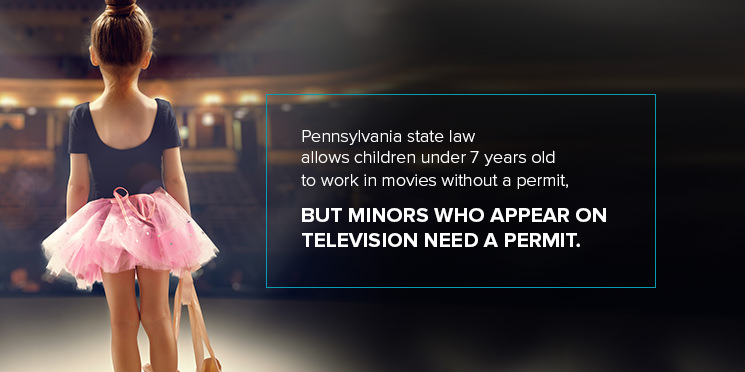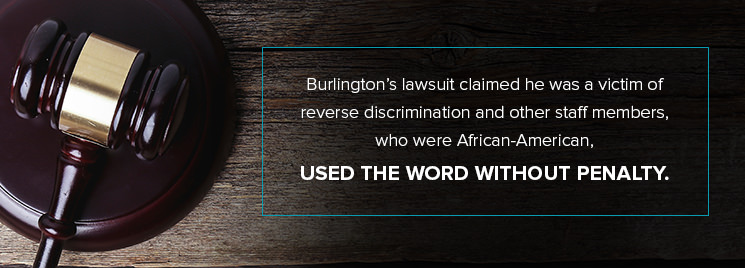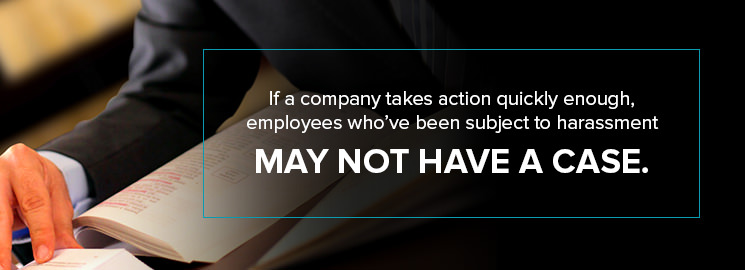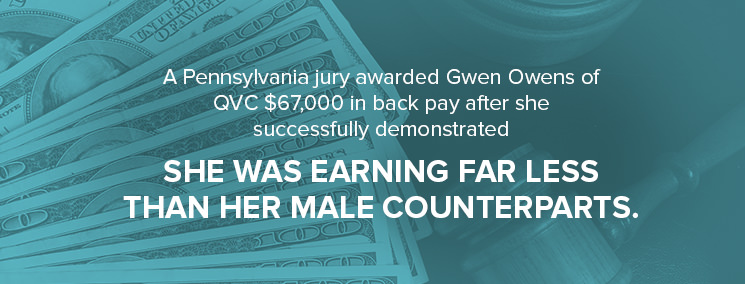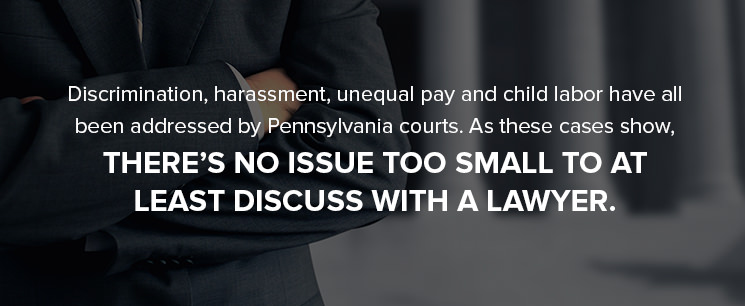By Derrek Cummings on February 15th, 2016
As in most of the United States, employees who work in the state of Pennsylvania are considered to be “at-will.” This means unless a specific employment contract is in place at the time of hiring, an employee may be terminated at any time, for any reason.
Likewise, an employee can quit their job any time, for any reason. Terminations, however, that appear to be based on discrimination are still illegal, and employees can take the corporation to court. A company that fires an employee based on his or her race, age, gender, religion, national origin or disability in Pennsylvania is opening itself up to a lawsuit.
Laws to protect employees are in place in other circumstances as well. According to whistle blower laws, employees of public bodies, such as government agencies, who report their company’s illegal activities to authorities are still allowed to work and cannot legally be retaliated against. 
Likewise, taking time off work for an illness or to care for a sick family member under the Family and Medical LeaveAct (FMLA) is also a protected legal situation that prohibits you from being terminated from your place of full-time employment. But even if you work within these guidelines or you’re a manager at a Pennsylvania-based company that has terminated an employee under arguable circumstances, you might find yourself involved in one or more PA employment lawsuits.
Pennsylvania employment law can be difficult to figure out, even for the savviest and most experienced of business people. Changing laws also make it hard to keep up-to-date with the latest rulings and legalities. As examples of how complicated and perplexing the Pennsylvania business laws can be, here are 11 of the strangest employment lawsuits in Pennsylvania.
1. Drug and Alcohol Residential Facility Teacher Fired for DUIs
A tenured and well-respected teacher who worked in an alternative education program in New Oxford, Pennsylvania, was fired from her job after the school became aware of her third driving under the influence (DUI) arrest. The school, a drug and alcohol residential facility for teenagers near Gettysburg, Pa., cited the teacher’s immoral conduct as reason for her termination, even though the DUIs did not affect her classroom performance.
Here’s the background:
- In 1999, Nancy J. Zelno pled guilty to her third DUI charge. She had her driver’s license revoked and served a 92-day jail sentence, which was carried out on weekends and during summer vacation so as to not interfere with her work as a teacher.
- However, in 2000, when Lincoln Intermediate Unit No. 12 learned of her convictions, it fired her for violating Section 1122 of the Public School Code. This Pennsylvania code states immorality is a valid cause for termination, which the school district believed applied to Zelno’s circumstances.
Zelno, while acknowledging the DUIs, appealed to the state secretary of education to get her job back. She argued that the immoral finding was incorrect because no students could testify their own morals had been affected by her actions and her teaching ability was also not diminished by the DUIs. The education secretary sided with the school and upheld her original termination.
Zelno then appealed to the Commonwealth Court of Pennsylvania, but the results were the same. The Court ruled that she was a poor role model for children and could not continue teaching.
“Ignoring that she was teaching students who … also had drug and alcohol problems, her conduct … is a bad example to students whose ideals she as a teacher is supposed to foster. This affects her credibility and impacts her ability to teach,” wrote Commonwealth Judge Dan Pellegrini in the court’s ruling. Zelno was forced to give up her court fight and leave her career.
2. Prosthetic Sparks a Suit at a Snack Food Company
In 2012, snack food employee Pauline Davis worked in what she believed was a welcoming environment for transgender employees. At the Lackawanna County, Pa., plant where she was employed, she worked alongside a male-to-female transgender individual who was openly wearing female clothing while he underwent hormone treatments.
Davis did not see any open discrimination or harassment of this co-worker, so she felt comfortable opening up about her own sexual identity. As Davis herself was contemplating gender reassignment surgery to become a male, she began wearing a prosthetic penis to her workplace.
Although the prosthetic was hidden beneath her clothing and had no bearing on her work ability, Davis mentioned it in confidence to several co-workers. The co-workers began gossiping about her throughout the company.
Shortly thereafter, the company, J&J Snack Foods, which is headquartered in New Jersey and is known for producing Icee, Luigi’s and Minute Maid Juice Bars, fired her for non-specific reasons. Davis filed suit against the company for sex discrimination, claiming although the company was supportive of a male undergoing sex-reassignment surgery, it did not offer the same support to a woman who was transitioning to a male.
While the original discrimination lawsuit was filed in January 2012 in Pennsylvania’s Middle District Court, there is little information about how the suit proceeded. This may indicate that an out-of-court settlement was reached or the case was later dropped.
3. “Jon & Kate Plus 8” Plus Lawsuit: TV Show Violates Child Labor Laws
The production team and parents behind the hit TLC show “Jon & Kate Plus 8,” which followed the Reading, Pennsylvania-based Gosselin couple and their eight children, was found to be in violation of state child labor laws. The popular reality-based television show centered around the family life of a young couple who had 6-year-old twins and toddler-aged septuplets.
Their crime:
- Not getting the proper work permits for the eight Gosselin children, who all appeared on the program.
- Oddly enough, Pennsylvania state law allows children under 7 years old to work in movies without a permit, but minors who appear on television need a permit.
An investigation by Pennsylvania’s Bureau of Labor Law Compliance did not find any evidence the children were mistreated. Instead, the only violation was the lack of proper work permits needed for children performing work duties within the state of Pennsylvania.
Although the absence of work permits for the children was a code violation, the Bureau decided not to press charges as long as future work permits were obtained in a timely manner for all children. The show was canceled shortly thereafter when Jon and Kate Gosselin got divorced, although smaller features about Kate and the children still aired. TLC’s production company, Figure 8 Films, which worked on the shows, did get six-month working permits for each of the children so they could continue filming their new show, “Kate Plus 8.”
4. Pittsburgh Hospital Fires Cancer-Stricken Employee
One might expect a medical center would be sympathetic and understanding to employees who are diagnosed with cancer. But according to a disability discrimination suit, LifeCare Hospitals of Pittsburgh was less than helpful to a long-time employee with cancer, making her workload more difficult and eventually firing her due to her disability.
Based on the lawsuit brought by the United State Equal Employment Opportunity Commission (EEOC), Diana Altieri-Hand was a business manager for the hospital with a long-standing satisfactory work record. After Altieri-Hand was diagnosed with cancer and underwent both surgery and chemotherapy, she was initially provided with reasonable accommodations that allowed her to continue working.
But soon after her cancer treatments ended, Altieri-Hand was asked to return to work full-time and was given no extra accommodations to help her manage her work responsibilities along with her ongoing health problems.
Problems ensued:
- Her workload suddenly increased.
- Her long-time staff assistant was reassigned, leaving Altieri-Hand to handle extra work on her own.
- Finally, Altieri-Hand was fired for not meeting the newly created work expectations, which the EEOC alleged was based on discrimination due to her cancer and violated the Americans with Disabilities Act (ADA).
After the lawsuit was filed, LifeCare agreed to pay $100,000 to Altieri-Hand to settle the dispute. LifeCare also agreed to train its staff members about the ADA.
5. Wet Seal Pays Big for Unexplained Terminations
Wet Seal, the budget-friendly women’s clothing store found in many malls and retail shopping centers across the country, was sued — and lost — in a major discrimination case based in Pennsylvania.
Nicole Cogdell, an African-American manager at the King of Prussia Mall’s Wet Seal store, had received outstanding ratings for her work at the company. However, after someone from the corporate office reportedly complained too many African-Americans were employed at the store, Cogdell was fired because she was no longer, as Wet Seal described, “right for the job.” Two other African-American employees in Philadelphia-area Wet Seals were also fired during the same time period, despite having good work records with no indication of dissatisfaction from the company.
Cogdell’s complaint was picked up by the U.S. Equal Employment Opportunity Commission (EEOC), which stated in its filing that Wet Seal corporate headquarters openly stated it wanted employees to be:
- Thin
- White
- Have blond hair and blue eyes
Wet Seal referred to this as the so-called Armani look, referring to the high-priced Italian fashion designer.
Even though the company’s vice president, who made the Armani-based statement, was soon fired, the EEOC argued Cogdell and the others in the suit were racially discriminated against. In May 2013, a federal court ordered Wet Seal to pay $7.5 million to settle the suit. The company also agreed to encourage diversity in its workplace through improved employment and hiring practices.
6. TV Anchor Loses Job Over N-Word
Tom Burlington, a Fox29 news anchor in Philadelphia, came under fire for using the n-word during a staff meeting with other television staff members.
During a 2007 staff meeting following a news story about the NAACP symbolically burying the n-word, Burlington asked if this meant that everyone can now use the n-word. Nicole Wolfe, one of Burlington’s African-American co-workers, objected to his use of the word.
Burlington later stated that his question regarded whether it was okay to use the word during the station’s broadcast of the story. Witnesses differed in the amount of times they recalled Burlington using the word:
- Some stated he only said it once
- Others recalled he said it at least 12 times
A few days after this staff meeting, Burlington was terminated from the job, which he had held since 2004.
Burlington’s lawsuit claimed he was a victim of reverse discrimination and other staff members, who were African-American, used the word without penalty. The suit went before a federal court, which ruled against Burlington in June 2015 and found racial discrimination did not play a role in his termination. Burlington is now a successful real estate agent in the Philadelphia area.
7. Manufacturer Fires, Rehires Man in Drug Treatment
A Pittsburgh-based copper manufacturing company, Hussey Copper, paid $85,000 in a disability suit brought by a potential employee. The suit alleged the company originally offered a production job to Donald Teaford but withdrew the offer after learning Teaford was in a methadone program, used to treat people who have a dependency on opiates. Methadone is commonly used to:
- Help patients get off of drugs, such as Oxycodone and heroin.
- Avoid experiencing the physical or mental side effects of withdrawal.
Hussey believed the methadone treatment made Teaford unable to safely perform the duties of the job, even though he did not exhibit any side effects from the treatment. Prior to learning about the methadone program, Hussey’s doctors cleared Teaford for work.
Teaford filed suit against Hussey with help from the EEOC, which said although Teaford’s methadone treatments qualified as a disability, the medication did not prohibit him from being able to perform any of the job responsibilities. Evidently the company agreed. In addition to forking over the $85,000 settlement, Hussey hired Teaford as a mason laborer.
8. Wal-Mart Pays $78 Million for Overworking Employees
In 2006, mega-store Wal-Mart was ordered to pay $78 million to its Pennsylvania employees who had joined in a class-action lawsuit against their employer. The employees testified Wal-Mart forced them to work outside of their usually scheduled hours without extra compensation and also made them work without regular breaks.
More than 187,000 employees took part in the suit, which alleged the unpaid work occurred between 1998 and 2006. Lawyers for the employees showed Wal-Mart’s own records proved Pennsylvania staff members worked through more than 33 million break periods without additional compensation.
Individual retail staff testified before the Pennsylvania Court of Common Pleas that they were often expected to work 8 to 12 hours of unpaid time per week. The court agreed Wal-Mart was in violation of federal employment laws and ordered the retailer to pay the employees for the additional hours and lost break periods.
9. Co-Workers Cut FedEx Driver’s Brakes
A female FedEx employee who claimed she was subjected to sexual harassment and a hostile work environment was awarded $3.2 million by a federal jury. Marion Shaub, of Wrightstown, was a tractor trailer driver for the Tennessee-based company in its Middletown, Pa., branch.
She was fired from her position after she complained to management about ongoing sexual harassment, which included:
- Sexual slurs
- Intimidating comments from her male co-workers
- Her truck’s brakes getting cut and filled with dirt
After her termination in October 2000, Shaub contacted the EEOC and filed suit against the shipping company. A federal jury found FedEx violated the 1964 Civil Rights Act and inflicted intention emotional distress and pain on her. The jury awarded Shaub $2.5 million in punitive damages, $391,400 in missed wages, and $350,000 in damages for pain and distress.
10. Workers Harassed With Nooses Lose Case
If a company takes action quickly enough, employees who’ve been subject to harassment may not have a case. A racial harassment case brought against metals company Allegheny Ludlum near Pittsburgh was dismissed by a federal judge.
In July 2009, two African-American employees brought a suit against the company because they believed they were forced to work in a racially hostile environment. On two separate occasions, nooses were found hanging near their workspace, along with racially insensitive graffiti. Although the employees said they were not intimidated by the nooses, they alleged Allegheny Ludlum was slow to respond to their complaints.
The company testified it took immediate steps to investigate and stated it didn’t tolerate racial harassment or intimidation. United States District Judge Terrence McVerry agreed the company took appropriate action to address the issue and dismissed the lawsuit.
11. QVC Gives $67,000 to Underpaid Female Anchor
A Pennsylvania jury awarded Gwen Owens of QVC $67,000 in back pay after she successfully demonstrated she was earning far less than her male counterparts. The jury, however, did not find that QVC, of West Chester, Pa., willingly discriminated against her based on her race — she is African American — or because of her gender.
She did, in fact, earn less than her male co-workers, but the jury did not indicate this was a willful discrimination on behalf of the home shopping network. QVC, the jury determined, did violate the Equal Pay Act but, in a week of deliberations, did not believe that the lack of pay was a willful act of discrimination.
Talk to a Lawyer About Your Employment Concerns
Discrimination, harassment, unequal pay and child labor have all been addressed by Pennsylvania courts. As these cases show, there’s no issue too small to at least discuss with a lawyer.
If you believe you have been illegally terminated from a job or were discriminated against by a company — or if you’re a manager for a Pennsylvania company and you were involved in an employee termination that is resulting in a lawsuit — protect yourself by seeking the advice of a skilled and knowledgeable law firm such as Weisberg Cummings, P.C., in Harrisburg. Contact us at 717-238-5707 for a free initial consultation.
Contact us

